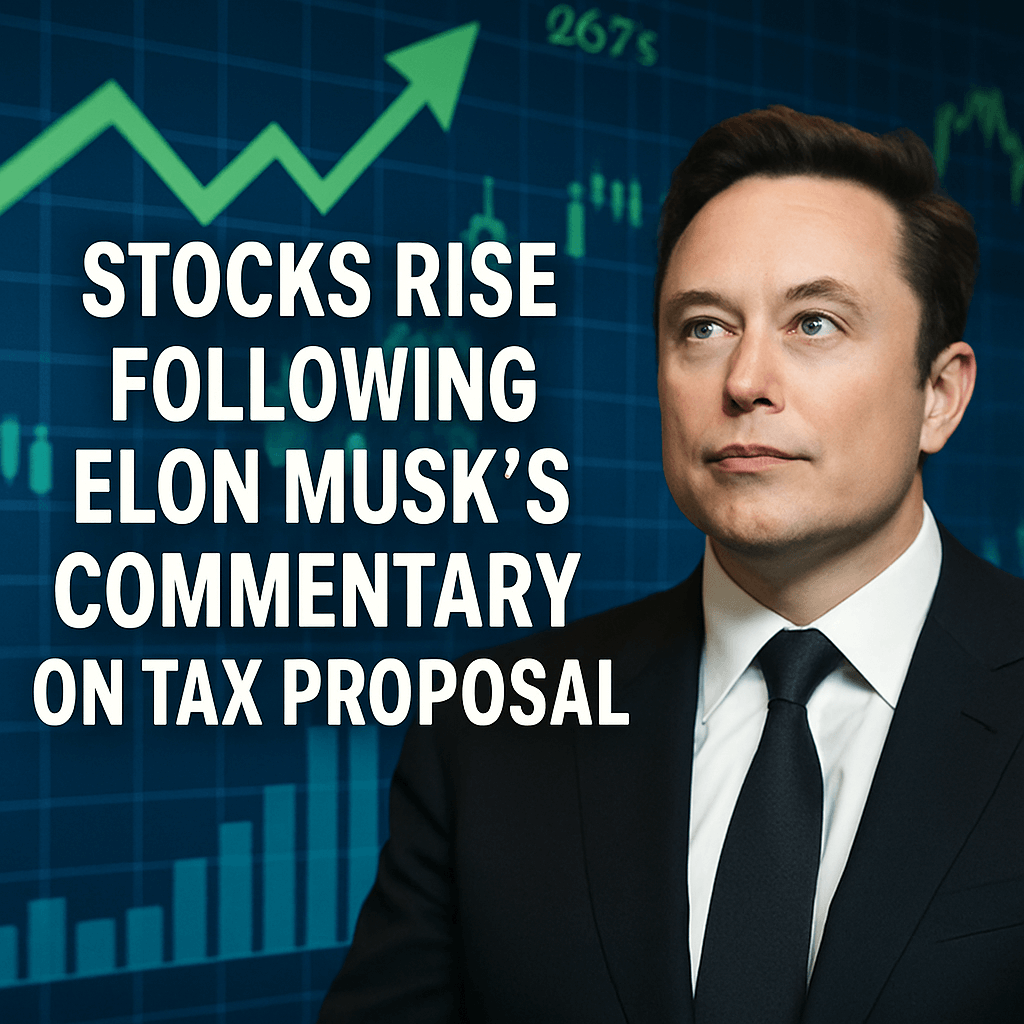Stocks Rise Following Elon Musk’s Commentary on Tax Proposal

While the stock market appears to have emerged from its recent tariff-related stagnation, the U.S. economy faces significant challenges ahead. On Tuesday, in a surprising twist, Elon Musk, one of President Trump’s most prominent allies, publicly criticized a proposed tax bill supported by the administration, labeling it a “disgusting abomination.” This development raises questions about the future of political support for the president as he navigates contentious economic policies.
Market Reactions and Investor Sentiments
Despite the public spat between Musk and Trump, investor optimism was palpable on Wall Street. The S&P 500 index climbed by 0.58% on Tuesday, buoyed primarily by strong performances from technology stocks, including Nvidia, which recorded a gain of 2.80%. Analysts attribute this uptick to a mix of factors, including improved earnings reports from tech companies and speculation surrounding an imminent meeting between President Trump and Chinese President Xi Jinping.
The Implications of Strained Relationships
Elon Musk’s vocal disapproval of Trump’s proposed tax bill marks a significant cooling in their once-collaborative dynamic. After previously lending considerable financial support for Trump’s re-election campaign and taking on the role of leading the newly established Department of Government Efficiency (DOGE), Musk’s relationship with the White House has deteriorated. His decision to distance himself follows mounting tensions stemming from Trump’s aggressive tariff policies, which threaten to impact Musk’s diverse business interests spanning Tesla and SpaceX.
Details of the Tax Bill and Musk’s Concerns
In a post on X (formerly known as Twitter), Musk condemned the tax bill as “pork-filled” and criticized lawmakers who endorsed it, stating they “know you did wrong.” The controversial proposal includes substantial tax cuts, with a compounded effect expected to increase the federal deficit. Additionally, it seeks reductions in funding for essential programs such as Medicaid and food assistance while enhancing military budgets and deportation efforts. Critics argue that such fiscal measures could exacerbate economic inequalities. Musk’s concerns appear to resonate with a broader economic forecast; despite a recent uptick in Tesla’s stock prices—gaining 0.46% on Tuesday and climbing approximately 55% since a low of around $220 in April—investors remain cautious about future fiscal policies.
Global Trade Tensions and Market Volatility
While Musk and Trump appear to be on diverging paths, investors are keeping a close eye on the potential meeting between Trump and Xi Jinping. The ongoing trade tensions between the U.S. and China have led to volatility in the stock markets, impacting investor confidence. Recent reports indicate that the two nations had agreed to pause tariff escalations for a 90-day period starting in mid-May, allowing some breathing room for markets that have been sensitive to such geopolitical announcements.
Crypto Developments in the Trump Sphere
Amid these political and market dynamics, Trump’s ventures into cryptocurrency have resurfaced in the headlines. There are reports that a digital wallet project, aimed at allowing users to store and transact in cryptocurrencies—including a self-branded memecoin associated with Trump—may be in the works. Notably, Eric Trump and Don Jr. have been involved with their father’s crypto initiatives but have denied prior knowledge of the wallet’s development. The excitement surrounding cryptocurrencies continues to fuel speculative trading; Bitcoin saw a slight increase of 0.38% at the time of this report. This reflects a broader trend in which financial instruments closely tied to political figures and economic policies react to real-time news.
Introducing the 2025 Fortune 500: the definitive ranking of the biggest companies in America.
Conclusion
The rift between Musk and Trump highlights the complex interplay between business, politics, and market sentiment. As stocks are buoyed by hopes of easing international trade tensions, further clarification on domestic fiscal policies remains crucial for sustained market confidence. Investors will undoubtedly be watching these developments closely as both parties navigate their respective futures.
About the Author:
Leo Schwartz is a reporter at Fortune covering fintech, crypto, venture capital, and financial regulation.
Source: fortune